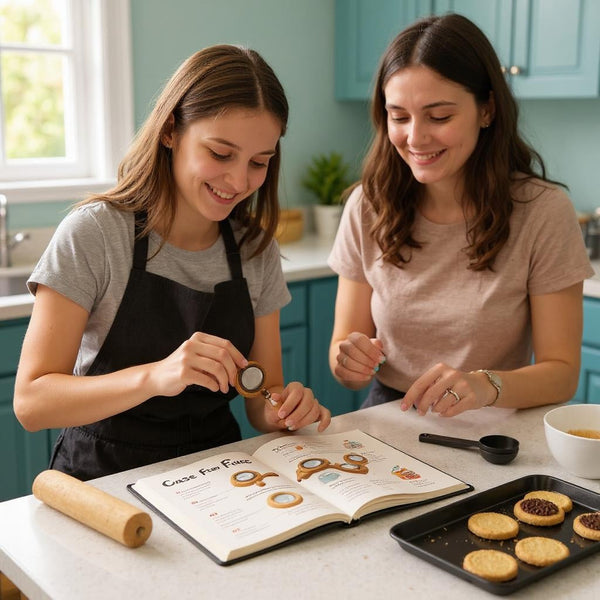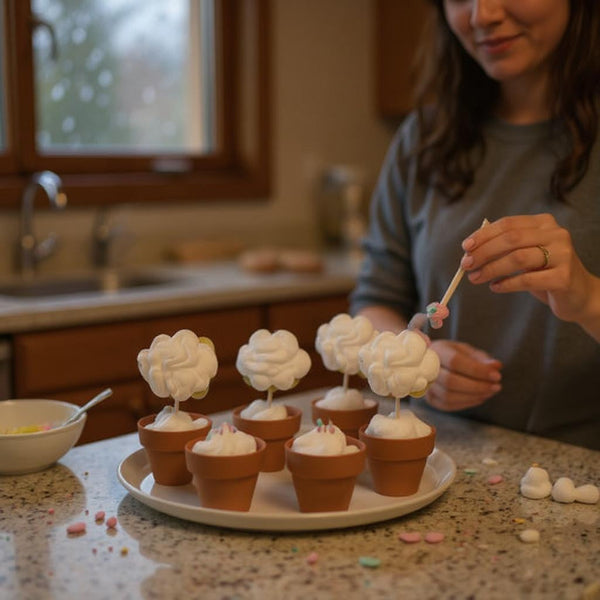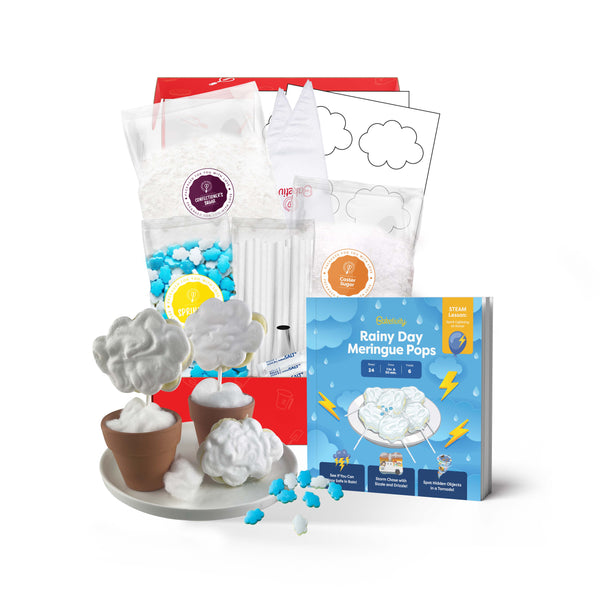Parent-child bonding is a crucial element in a child's development that greatly impacts their emotional well-being and social skills. Understanding the significance of parent-child bonding can help parents create strong,
nurturing relationships with their children, which can have long-lasting positive effects on their overall development. In this article, we will delve into the different aspects of parent-child bonding, explore its psychological and social implications, discuss strategies to enhance it, and address the challenges that can arise along the way.
Understanding Parent-Child Bonding
Defining Parent-Child Bonding
Parent-child bonding, also known as attachment, refers to the emotional connection formed between a parent or caregiver and their child. It is a deep, affectionate bond that is vital for a child's development. This bond is built through consistent, responsive interactions, and provides a secure base from which children can explore the world around them.
Parent-child bonding is a complex and multifaceted process that begins in infancy and continues to evolve throughout childhood and beyond. It is not a one-time event, but rather a dynamic and ongoing relationship that influences various aspects of a child's life. This bond is characterized by feelings of love, trust, and security, and it lays the groundwork for
healthy emotional development.
The Role of Bonding in Child Development
Bonding plays a fundamental role in shaping a child's development. It helps foster a sense of security, trust, and emotional stability in children. When children feel securely attached to their parents or caregivers, they are more likely to develop a positive self-concept and a healthy level of self-esteem. Moreover, bonding serves as a foundation for the development of essential social and cognitive skills.
Research has shown that children who have secure attachments with their parents are better equipped to regulate their emotions, form healthy relationships, and navigate life's challenges with resilience. The quality of the parent-child bond can have long-lasting effects on a child's mental health, academic achievement, and overall well-being. By prioritizing bonding and attachment in the early years, parents can set the stage for their child's future success and happiness.
The Psychological Aspects of Parent-Child Bonding
Emotional Benefits of Strong Bonds
Strong parent-child bonds contribute to healthy emotional development in children. When children feel loved, supported, and understood, they are better equipped to regulate their emotions and manage stress effectively. This emotional stability enables them to build resilience, cope with life's challenges, and develop healthy coping mechanisms.
Furthermore, a strong parent-child bond can lead to increased self-esteem and self-confidence in children. When children receive consistent love and support from their parents, they internalize a sense of worthiness and belonging, which positively impacts their self-perception and overall mental well-being.
Impact on Mental Health
Research suggests that a secure parent-child bond can have a positive impact on a child's mental health. Children who have nurturing relationships with their parents are less susceptible to developing anxiety and depression later in life. Additionally, a strong parent-child bond fosters open communication, providing an avenue for children to express their thoughts and feelings freely.
Moreover, a strong parent-child bond can act as a protective factor against behavioral issues and substance abuse in adolescence. Children who feel connected to their parents are more likely to make healthy choices and seek guidance from trusted adults when faced with peer pressure or difficult situations, reducing the likelihood of engaging in risky behaviors.
The Social Implications of Parent-Child Bonding
Bonding and Social Skills Development
Parent-child bonding plays a vital role in the development of a child's social skills. Through interactions with their parents, children learn how to engage with others,
develop empathy, and navigate social relationships. A secure parent-child bond lays the groundwork for children to form healthy, mutually respectful interactions with their peers and adults.
Moreover, research has shown that children who have strong bonds with their parents tend to exhibit higher levels of
self-esteem and confidence in social situations. This foundation of security and trust allows children to explore the world around them with a sense of safety, enabling them to take risks, learn from their experiences, and build resilience in the face of challenges.
Influence on Future Relationships
The quality of the parent-child bond can have a lasting impact on a child's ability to form and maintain relationships in adulthood. Children who have experienced trusting, healthy relationships with their parents are more likely to develop secure attachments in their future relationships. These individuals tend to have better communication skills, empathy, and problem-solving abilities.
Furthermore, the emotional intelligence nurtured through positive parent-child bonding can lead to more fulfilling and meaningful connections in adulthood. Adults who have a secure attachment style, stemming from a supportive and loving relationship with their parents, are better equipped to establish intimate relationships based on trust, respect, and emotional intimacy. This emotional foundation serves as a strong pillar in navigating the complexities of adult relationships, fostering deeper connections and long-lasting bonds.
Strategies to Enhance Parent-Child Bonding
Building a strong bond between parents and children is essential for healthy family dynamics. Effective communication is a cornerstone of this relationship. By practicing active listening, parents can show their children that their thoughts and feelings are valued. Demonstrating empathy and using encouraging language can create a safe space for children to express themselves openly. This open line of communication can lead to deeper connections and understanding between parents and their children.
Furthermore, engaging in regular, meaningful conversations can provide opportunities for parents and children to share their thoughts, dreams, and fears. By actively participating in each other's lives through communication, parents can gain insight into their children's world, fostering a sense of closeness and trust.
Communication Techniques for Better Bonding
Effective communication plays a key role in enhancing parent-child bonding. Active listening, showing empathy, and using encouraging language can help parents establish open lines of communication with their children. Regularly engaging in meaningful conversations and sharing experiences can strengthen the bond between parents and children.
Additionally, parents can create a nurturing environment by being present and attentive during conversations. By setting aside distractions and giving their full focus to their children, parents can convey the message that they are valued and important. This undivided attention can deepen the emotional connection between parents and children, laying the foundation for a strong and lasting bond.
Activities to Strengthen Parent-Child Relationships
Engaging in activities together is another powerful way to enhance parent-child bonding. Doing shared hobbies, playing games, or participating in outdoor activities can create opportunities for quality time and bonding experiences. These activities foster trust, cooperation, and joy, strengthening the bond between parent and child.
Moreover, participating in activities that challenge both parents and children to step out of their comfort zones can build resilience and problem-solving skills. Overcoming obstacles together can strengthen the parent-child relationship by fostering a sense of teamwork and accomplishment. By sharing these experiences, parents and children can create lasting memories and deepen their connection.
Challenges in Parent-Child Bonding
Common Obstacles to Effective Bonding
While parent-child bonding is crucial, it is important to recognize that challenges can arise. Busy lifestyles, work demands, and stress can create obstacles in building and maintaining a strong bond. Additionally, life transitions, such as divorce, relocation, or the arrival of a new sibling, may also present challenges that require special attention and support.
Overcoming Bonding Difficulties
It is possible to overcome challenges and strengthen the parent-child bond with persistence and intentionality. Seeking support from professionals such as therapists, attending parenting classes, and practicing self-care can help parents navigate difficulties and provide the necessary support for their children. Building a network of support with other parents and finding resources within the community can also prove invaluable.
Conclusion
Parent-child bonding is an essential component of a child's development, influencing their emotional well-being and social skills. By understanding the significance of parent-child bonding, parents can actively engage in nurturing relationships with their children. Through consistent, responsive interactions and the use of effective communication techniques, parents can create strong bonds that contribute to their child's emotional stability, social skills, and future relationships. While challenges may arise, with dedication and support, parents can overcome obstacles and build meaningful connections with their children, ensuring their overall well-being and success.
Start Your Family Baking Adventure with Baketivity!
Ready to turn your kitchen into a fun and educational bakery? Join the Baketivity Baking Club and embark on a delightful journey of family bonding, creativity, and learning. Our baking kits, infused with quality ingredients and the joy of discovery, are designed to provide you with everything you need to create lasting memories. Embrace the art of baking and nurture your child's culinary talents today.
Join the Baking Club and let's bake up some fun!




